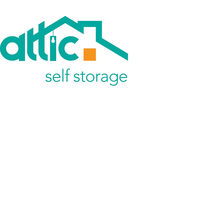
Mistakes I learnt from a family of entrepreneurs
I was young when I realised I came from a family of businessmen. At the age of eight, my paternal grandfather had been engaging in business deals between Africa and Belgium. One of my uncles had also started an import-export business based in Brussels. Then when I was ten years old, my father jumped on the bandwagon and launched a business engaged in the export of exotic meats from Botswana to the EEC. This is what began to pique my curiosity in business.
However, it’s when I became an adult I realised that my family’s business quests were not profitable ones. My grandfather hadn’t done particularly well and my uncle’s business had failed. By the time I was a teenager, I realised that my father’s business wasn’t exactly racing along either and eventually it went into liquidation.
Suddenly I had to face reality - leading a business wasn’t a bed of roses - but this didn’t shake off my desire to become an entrepreneur. I wanted to work for myself. I wanted to have the freedom to be creative, try different ideas, find new ways of doing things, and be better than the competition.
A couple of years after my father’s final business venture failed, I launched Attic Self Storage, which now has two London-based facilities and more sites launching soon. We are private equity backed and growing rapidly with strong business partners. I’m proud of my team and, best of all, I’m able to spend time with and provide for my family.
Learning from the challenges my relatives faced, I wanted to share what I have learnt to help others succeed:
Get relevant business experience
I was determined to break the cycle of failure and make a success of business, so I decided to prepare as much as possible.
I trained as a Chartered Accountant and took a role within the business recovery division. I spent my early professional career dealing with bankruptcies and company liquidations, and soon progressed to working with insolvent companies that were still trading.
In my early 20s, I found myself left to run a high pressure aluminium die-casting business based in Bourne, Lincolnshire. I went on to advise businesses in financial difficulty and before I knew it, I felt ready to launch my own venture.
Cash flow management is key
Cash really is king. Similar to many companies, we were hit hard by the financial crisis back in 2008, and this was just at the beginning of my entrepreneurial journey. The business was growing but we were quickly burning cash and, at the time, banks were not lending to individuals or businesses.
However, the skills I gained working in corporate finance helped enormously during this period. I ran a 13-week rolling cash flow forecast almost daily for the first two to three years. It was a simple receipts and payments cash flow which played a crucial role in our survival.
Don’t rush into building a team
I believe that building a business is actually about building a team. While it can be very exciting and a challenge at the same time, take your time in hiring the right people.
Develop a plan and a strategy for how you want to grow your team, based on where you see the business in the long term. Then start scouting for the right people - share the vision with them and persuade them to join your team. You need to ensure they’re inspired and work with them to deliver it.
Culture is also equally important when it comes to hiring, so trust your instincts. You know you’ve got it right when you see the team identifying and solving problems autonomously, working collaboratively and getting along naturally.
Always maintain a focus on your customers
Customers are at the heart of our business. In fact, having found that customer service is a key pain point of the storage industry, we try to stand out by fostering a company culture dedicated to enhancing customer satisfaction and building strong customer relationships.
We want customers to see their storage unit as an extension of their home or business. We aim to simplify the storage process for them by developing new services and tools such as our online check-in and account management system and VR enabled store tours.
Communication is key
Clear, effective and honest communication is essential. Talk to your staff to build team morale, talk to your customers and clients, understand where they are and work to pre-empt any reductions in business before they occur. Talk to your suppliers, try to negotiate better rates, better terms and smaller minimum order quantities but remember they need to earn a living and they too are part of your team. Finally, and most importantly, keep talking to your relationship manager at the bank.


